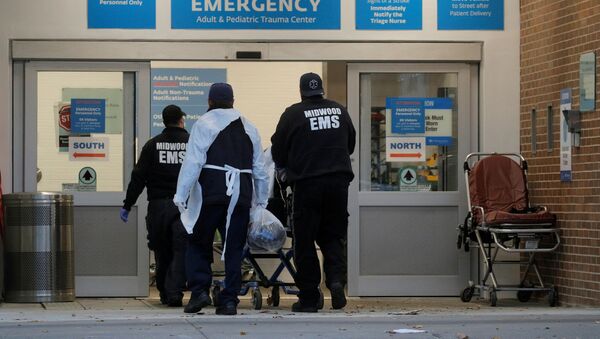WASHINGTON (Sputnik) - The United States announced phase 3 clinical trials of two experimental drugs to treat hospitalized COVID-19 patients when combined with existing treatments, the National Institute for Allergy and Infectious Diseases (NIAID) said in a press release.
"The trials are part of the ACTIV-3 master protocol, which has an adaptive design allowing investigators to add new sub-studies of additional investigational agents," the release said on Thursday.
ACTIV-3 refers to a NIAID protocol designed to test treatments using multiple drugs administered simultaneously, with trial participants either receiving the investigative agent or a placebo in addition to standard treatments, which typically include the antiviral drug remdesivir, the release said.
One sub-study will evaluate VIR-7831, a monoclonal antibody developed by GlaxoSmithKline in the United Kingdom and Vir Biotechnology in the United States. The other sub-study will evaluate a combination of BRII-196 and BRII-198, two monoclonal antibodies manufactured by Brii Biosciences in Beijing and the state of North Carolina, the release added. Monoclonal antibodies are grown in a lab as copies of naturally occurring proteins produced by the human immune system.
The protocol allows researchers to evaluate each antibody in a small group of volunteers, and then to enroll a larger group of volunteers if the antibody appears safe and effective. Initially, researchers will enroll approximately 450 volunteers who have been hospitalized with mild to moderate COVID-19 and fewer than 13 days of symptoms, the release said.
If the experimental drug appears to be safe and effective, each sub-study will enroll an additional 700 people, half receiving the drug and half a placebo. The primary endpoint of the trial is the participants’ sustained recovery for 14 days after release from the hospital, the release added.









